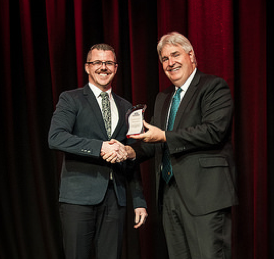Three Items
The Puke Ariki Trust Scholarship, valued at $5000, supports the studies of a postgraduate student whose research relates to Taranaki’s social history. Puke Ariki is Taranaki’s Museum, Library, Archive Centre based in New Plymouth, renowned for its extensive heritage collections. If you are interested in this scholarship, check out the Puke Ariki Trust Scholarship Terms and Conditions.
Associate Professor Jenny Bryant-Tokalau presented a paper to the conference ‘Islands and Oceans: Navigating Pacific Futures’ held at Auckland University, November 12-13th 2015. Jenny’s paper, entitled ‘Reforming Land Tenure in the Pacific: requirements and implications, the case of Fiji’, was chaired by former Oxfam director Barry Coates, and was part of an intensive two day workshop between University of Auckland (Pacific Studies), Auckland University of Technology, Australian National University and the University of Otago to look at areas of collaborative Pacific research.
Te Tumu PhD student Nathan Albury recently was awarded the Griffith University School of Language and Linguistics Outstanding Alumnus Award in recognition of his PhD research into folk linguistics for Te Reo Maori and Sami language. Nathan is completing his PhD at the Centre for Multilingualism in Society Across the lifespan – MultiLing (CoE), Department of Linguistics and Scandavian Studies, University of Oslo,with Dr Lyn Carter (Te Tumu) as one of the supervisors.
Seminar: The Folk Linguistics of Māori Language Revitalisation
Nathan Albury, PhD student, will be giving a seminar in Te Tumu on 2.30-3.30pm, Tuesday 18 November in R3S10 (3rd floor, Te Tumu). Please note that this is a different day and venue to usual.
Nathan’s paper, The Folk Linguistics of Māori Language Revitalisation, “applies the folk linguistics of language policy in respect to language revitalisation as a policy project. It reports preliminary findings from research that sought to compare what young indigenous and non-indigenous youth in contemporary New Zealand claim to know about language revitalisation as a policy process, what attitudes and beliefs these youth have towards activities and themes aimed at revitalising the Māori language, and how their knowledge and beliefs manifest into folk linguistic performance when these youth are positioned as hypothetical language policy bosses of the New Zealand government.”
For the full abstract click here, or on the “Seminars” page on the left


